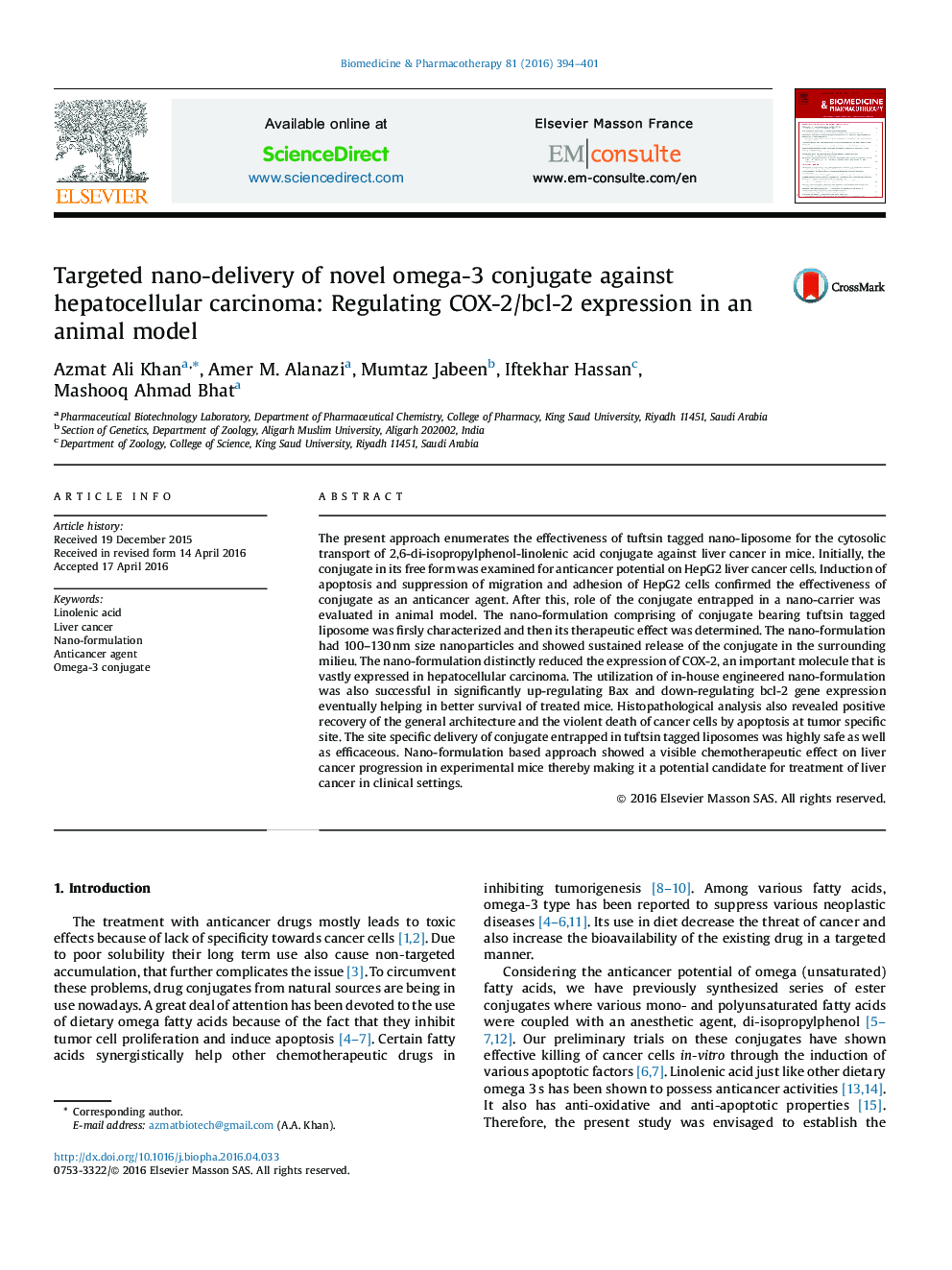| Article ID | Journal | Published Year | Pages | File Type |
|---|---|---|---|---|
| 2523706 | Biomedicine & Pharmacotherapy | 2016 | 8 Pages |
•Preparation and characterization of diisopropylphenol-linolenic acid conjugate entrapped liposomal nano-formulation.•Assessment of anticancer potential of nano-formulation against liver cancer.•The conjugate was able to inhibit proliferation, adhesion and migration of HepG2 cancer cells.•The nano-formulation modulated expression of COX-2, bcl-2 and Bax resulting in apoptosis of liver cancer cells in mice.
The present approach enumerates the effectiveness of tuftsin tagged nano-liposome for the cytosolic transport of 2,6-di-isopropylphenol-linolenic acid conjugate against liver cancer in mice. Initially, the conjugate in its free form was examined for anticancer potential on HepG2 liver cancer cells. Induction of apoptosis and suppression of migration and adhesion of HepG2 cells confirmed the effectiveness of conjugate as an anticancer agent. After this, role of the conjugate entrapped in a nano-carrier was evaluated in animal model. The nano-formulation comprising of conjugate bearing tuftsin tagged liposome was firsly characterized and then its therapeutic effect was determined. The nano-formulation had 100–130 nm size nanoparticles and showed sustained release of the conjugate in the surrounding milieu. The nano-formulation distinctly reduced the expression of COX-2, an important molecule that is vastly expressed in hepatocellular carcinoma. The utilization of in-house engineered nano-formulation was also successful in significantly up-regulating Bax and down-regulating bcl-2 gene expression eventually helping in better survival of treated mice. Histopathological analysis also revealed positive recovery of the general architecture and the violent death of cancer cells by apoptosis at tumor specific site. The site specific delivery of conjugate entrapped in tuftsin tagged liposomes was highly safe as well as efficaceous. Nano-formulation based approach showed a visible chemotherapeutic effect on liver cancer progression in experimental mice thereby making it a potential candidate for treatment of liver cancer in clinical settings.
